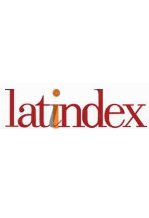As Raízes Comuns entre a Velha Economia Institucional e a Teoria Social de F. A. Hayek
Abstract
Este trabalho identifica no tratamento do aspecto evolucionário das instituições e na relação retroalimentadora entre estas e os indivíduos em uma ordem social a primeira raiz comum entre a Velha Economia Institucional e a Teoria Social de F.A. Hayek. A partir disso, são identificadas aproximações em outras concepções básicas, como as ideias de valor e equilíbrio. As possibilidades de identificar raízes comuns são expandidas quando alguns autores-chave da Velha Economia Institucional são abordados de maneira mais específica. A conclusão é que a tradição Institucionalista de John Commons é a mais adequada para o estabelecimento de uma raiz subjetivamente fundamentada para a explicação do aspecto processual do sistema social de modo semelhante à teoria de Hayek.
Downloads
References
COMMONS, J (1931). Institutional economics. The American Economic Review, 21: 648-657.
DULBECCO, P.; DUTRAIVE, V (2001). The meaning of market: comparing austrian and institutional economics. Evolution and Path Dependence in Economic Ideas, Past and Present, Cheltenham, UK: Edward Elgar, p. 41-70.
GRUCHY, A (1972). Contemporary Economic Thought: The Contribution of Neo-Institutional Economics. Clifton, New Jersey: Augustus M. Kelley.
GRUCHY, A (1947). Modern Economic Thought: the American Contribution. New York: Prentice-Hall.
HAYEK, F. A (1937). Economics and knowledge. Economica, v. 4, n. 13, p. 33-54.
HAYEK, F. A (1946). Individualism: true and false. Hodges, Figgis & Company.
HAYEK, F. A (1965). Kinds of Rationalism. The Economic Studies Quarterly, Tokyo, Vol XV, 3.
HAYEK, F. A (1982). Law, Legislation and Liberty. Routledge & Kegan.
HAYEK, F. A (1963). Rules, perception, and intelligibility. Proceedings of the British Academy, XLVIII, London, pp. 321–344.
HAYEK, F. A (1967). Studies in philosophy, politics and economics. Chicago: University of Chicago Press.
HAYEK, F. A (1968). The confusion of language in political thought: with some suggestions for remedying it. Institute of Economic Affairs.
HAYEK, F. A (1955). The counter-revolution of science: studies on the use and abuse of reason. The Free Press of Glencoe Collier-Macmillan Limited.
HAYEK, F. A (1945). The use of knowledge in society. The American economic review, v. 35, n. 4, p. 519-530.
HODGSON, G (2003a). Darwinism and Institutional Economics. Journal of Economic Issues, 37(1): 85-97.
HODGSON, G (2008). How Veblen Generalized Darwinism. Journal of Economic Issues, 42(2): 399-405.
HODGSON, G (2004). Reclaiming habit for institutional economics. Journal of Economic Psychology, 25: 651-660.
HODGSON, G (2003b). The hidden persuaders: institutions and individuals in economic theory. Cambridge Journal of Economics, 27: 159-175.
HODGSON, G (2000). What Is the Essence of Institutional Economics?. Journal of Economic Issues, 34(2): 317-329.
LEWIS, P (2014). Hayek: from economics as equilibrium analysis to economics as social theory. In: GARRISON, Roger W.; BARRY, Norman (Ed.). Elgar Companion to Hayekian Economics. Edward Elgar Publishing.
NEALE, W (1987). Institutions. Journal of Economic Issues, 21 (3): 1177-1206.
O'DRISCOLL, G.; RIZZO, M (1996). The economics of time and ignorance. Psychology Press.
RUTHERFORD, M (1984). Thorstein Veblen and the Processes of Institutional Change. History of Political Economy, 16(3): 331-348.
RUTHERFORD, M (1981). Clarence Ayres and the instrumental theory of value. Journal of Economic Issues, 15(3): 657-673.
RUTHERFORD, M (1983). J. R. Commons’s Institutional Economics. Journal of Economic Issues, 17(3): 721-744.
Downloads
Published
How to Cite
Issue
Section
License
The copyright of papers published in the Revista de Economia Mackenzie belongs to the authors, who grant to the Mackenzie Presbyterian University the exclusive rights to publish the content. Total or partial reproduction is prohibited without due authorization of the Editorial Committee, except when it is previously authorized.










